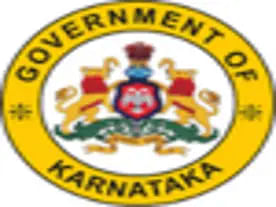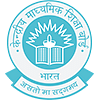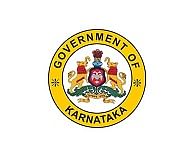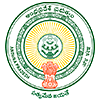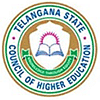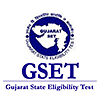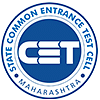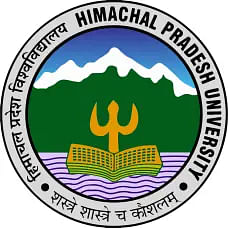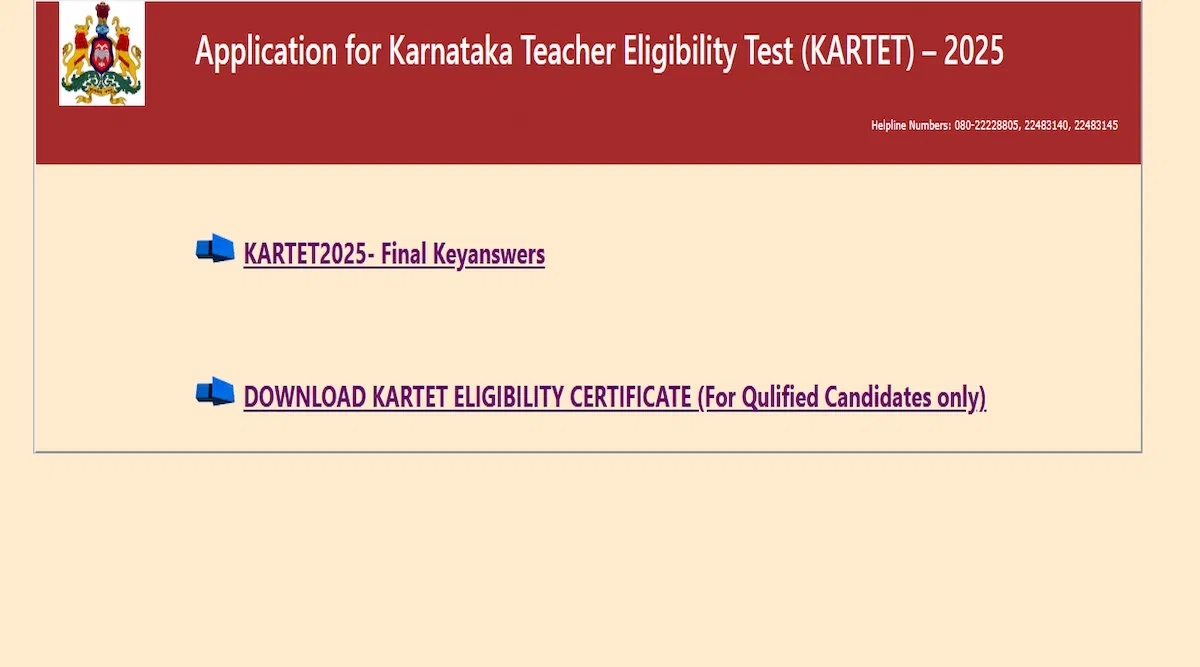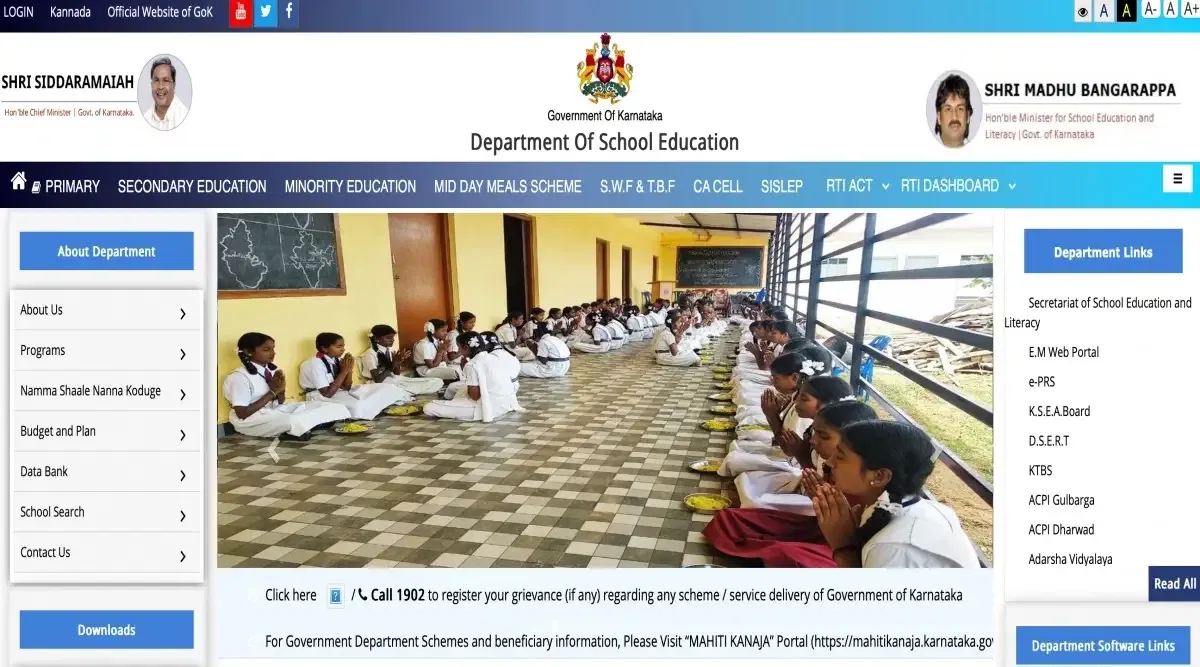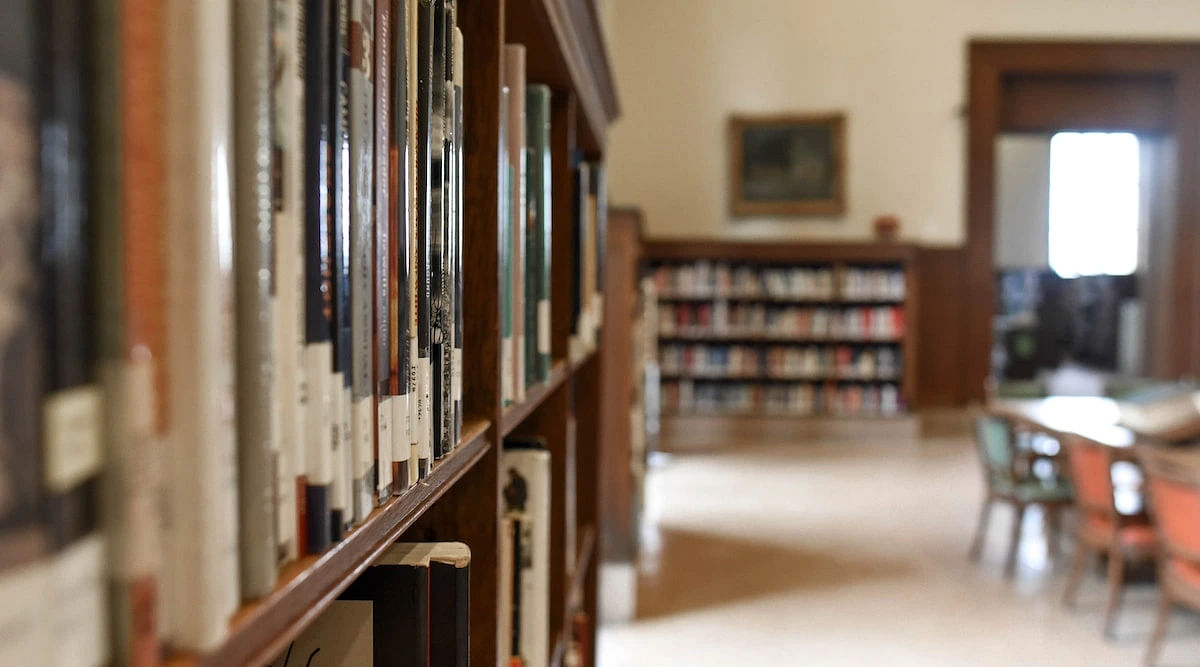
Table of Contents
KARTET 2024 answer key has been released on Jul 8, 2024. The authorities has released KARTET answer key 2024 for both Paper 1 and 2. Candidates can raise objections to the KARTET provisional answer key till Jul 13, 2024. Aspirants can download the answer key at sts.karnataka.gov.in/TET/. After considering the objections received, the KARTET final answer key will be released.
The minimal qualifying marks required for candidates to pass the KARTET 2024. The minimum qualifying KARTET marks/ cutoff for the General category is 60% in Papers I and II, whereas the minimum qualifying/ cutoff for the OBC/ST/SC/PH/VH category is 55%.
Candidates who clear the KARTET 2024 exam are considered to be eligible to apply as teachers in government schools. It must be noted that KARTET 2024 is just an eligibility test, and candidates will be placed as a teacher in a government educational institution only if he/she clears the Teacher Recruitment Exam conducted by the State Education Board of Karnataka.
KARTET Answer Key 2024
KARTET answer key 2024 for papers 1 and 2 has been published on Jul 8, 2024, sts.karnataka.gov.in/TET/. Candidates can raise objections to the KARTET provisional answer key till Jul 13, 2024. The KARTET final answer keys will be published after carefully considering the objections submitted by the candidates.
KARTET 2024 answer key objection period for the tentative answer keys will be open for the candidates to raise objections if any. Candidates need to present valid documents in support of their objections. They will have to submit the same through the link that will be provided on the official website.
Steps to Download KARTET 2024 Answer key
Candidates can follow the steps given below to view the answer keys.
- Step 1: Visit the official website.
- Step 2: In the notification, section click on the 'Answer key' link.
- Step 3: View and download the answer key PDF for each paper.
- Step 4: Take a printout of the answer key PDF.
Candidates can refer to the below table for KARTET answer key 2024 answer key links:
| Particulars | Link |
| KARTET 2024 Answer Key Objection Link | Click Here |
| KARTET 2024 Answer Key- Paper 1 | Download Here |
| KARTET 2024 Answer Key- Paper 2 | Download Here |
| KARTET 2024 Answer Key Notice | Download Here |
About KARTET Exam
KARTET (Karnataka Teacher Eligibility Test) is an exam conducted by the State Education Board of Karnataka to certify aspiring individuals who wish to be involved with teaching and education.
Candidates who are willing to appear for the KARTET exam must satisfy all the eligibility criteria. The candidates will be awarded a TET Certificate after qualifying for the exam. The TET Certificate will have a validation of seven years.
The highlights of the exam are given below:
| Particulars | Details |
| Exam Name | Karnataka Teacher Eligibility Test |
| Acronym | KARTET / Karnataka TET |
| Conducting Authority | State Education Board of Karnataka |
| Type of Examination | Teacher Eligibility Test |
| KARTET frequency | Once a Year |
| Application Mode | Online |
| Medium of examination | English, Kannada, Tamil, Telugu, Hindi, Urdu, Marathi |
| Exam Mode | Offline |
| Duration of Exam | 2 hours 30 minutes |
| Paper | Paper I: Primary Level, Paper II: Higher Primary Level |
| KARTET Official Website | schooleducation.kar.nic.in |
KARTET Exam Dates 2024
KARTET exam 2024 for Papers 1 and 2 was conducted on Jun 30, 2024, in two shifts. Shift 1 is scheduled to be held from 9:30 AM to 12 PM, and shift 2 from 2 PM to 4:30 PM. The important dates for the KARTET 2024 are tabulated below:
| Event | Dates |
| Upcoming Events | |
| KARTET 2024 Answer Key Objection Last Date | Jul 13, 2024 |
| Release of KARTET Final Answer Keys | Jul 2024 |
| KARTET 2024 Result Date | Jul 2024 |
| Revised KARTET 2024 Result Date | Jul 2024 |
| Past Events | |
| KARTET Notification 2024 | Apr 15, 2024 |
| KARTET 2024 Application Form Release Date | Apr 15, 2024 (Ongoing) |
| Application Form Last Date | May 15, 2024 |
| Application Form Fee Last Date | May 16, 2024 |
| KARTET 2024 Admit Card Release Date | Jun 20, 2024 |
| KARTET 2024 Examination Date | Jun 30, 2024 |
| Release of KARTET Preliminary Answer Keys for Paper 1 and 2 | Jul 8, 2024 |
KARTET Eligibility Criteria 2024
Candidates must make sure that they satisfy the KARTET 2024 eligibility criteria before applying for the examination.
Age limit: The minimum age limit is 18 years and the maximum age limit is 35 to 40 years as of the year of the examination. (Reserved Categories will be given a relaxation with the upper age limit).
Educational Qualification:
| Exam 1 (Primary Teacher) | Exam 2 (Upper Primary Teachers) |
|---|---|
|
Minimum Education required is class 12 or intermediate with 50% marks in the final exam. Candidates must have passed Diploma in Elementary Education or Bachelor’s of Education with 45% marks. Candidates in their final year of D.Ed / Bachelor of Education are also eligible to apply. |
The minimum qualification required is a Bachelor’s Degree (BA, BBA, BCom, BSc, BTech) with an aggregate score of 45% to 50%. Candidates must have passed in Diploma in Education (D.Ed) / Bachelor in Education (B.Ed). Candidates pursuing their final year in D.Ed / B.Ed are also eligible to apply. |
KARTET Application Form 2024
KARTET 2024 application form 2024 has been closed now. The last date to apply for the exam was May 15, 2024. However, the form fee payment last date was May 16, 2024. Students must note that the application form was released on Apr 15, 2024.
Candidates must visit the official website read the eligibility criteria and make sure they satisfy all the necessary criteria before applying. Candidates are required to fill up the application form and submit it within the last date of application form submissions.
Steps to Fill the KARTET 2024 Application Form
The candidates can follow the steps below to apply for the KARTET 2024 exam when the official announcement is made.
- Step 1: Visit the official website for the KARTET 2024 exam at schooleducation.kar.nic.in.
- Step 2: Click on the Application form link given on the home page for the KARTET 2024 Exam.
- Step 3: Register for the KARTET 2024 exam and proceed to the application form.
- Step 4: Follow the instructions provided by the website and fill up the application form.
- Step 5: While filling up the application form, the website will prompt for the upload of a scanned copy of a passport-sized photograph and the signature of the candidate. Upload the required documents in the respective document sizes requested.
- Step 6: Submit the Application Form by paying the fees. Take a printout of the Fee Receipt for future purposes.
- Step 7: Take a printout of the application form for future reference.
KARTET Application Fee 2024
The application form fee for the KARTET 2024 exam will be as follows:
| Category | Fees |
|---|---|
| General |
|
| SC/ST |
|
Documents Required for the KARTET 2024 Application Form
- A scanned copy of the candidate’s passport-sized photograph
- A scanned copy of the candidate’s signature
- Birth Certificate / Class 10th Certificate
- Intermediate / Bachelor’s Degree Certificate
KARTET Admit Card 2024
KARTET 2024 admit card was released on Jun 20, 2024, on the official website of the School Education Board of Karnataka. KARTET hall ticket is a very crucial document that the applicant has to keep in his/her possession throughout the admission process.
Candidates must check every detail mentioned on the admit card carefully after downloading it.
How to Download the KARTET 2024 Hall Ticket?
Candidates can follow the steps mentioned below to download their admit cards after the official announcement.
- Step 1: Visit the official website www.schooleducation.kar.nic.in.
- Step 2: Click on the “Download Admit Card” link in the latest news section.
- Step 3: Login to the portal using the application number.
- Step 4: After submitting all the required details, the admit card will be displayed on the screen.
- Step 5: Download the same, and take a printout for use on the exam day.
KARTET Exam Centres 2024
KARTET 2024 Exam will be conducted at the respective test centres:
| KARTET Exam Centres 2024 | |
| Belgaum | Gadag |
| Mysore | Athani |
| Gulbarga | Raichur |
| Chickodi | Hassan |
| Ramanagara | Gokak |
| Haveridte | Channapatna |
| Bellary | Bagalkot |
| Chitradurga | Mangalore |
| Jamakhandi | Davangere |
| Moodabidre | Bangalore |
| Dharwad | Puttur |
| Doddaballapur | Hubli |
| Ujire | Kanwar |
| Shimoga | Hospet |
| Dandeli | Bhadravathi |
| Bidar | Kumta |
| Sagar | Basavakalyan |
| Sirsi | Tumkur |
| Bhalki | Kolar |
| Tiptur | Bijapur |
| KGF | Udupi |
| Chamarajanagar | Koppal |
| Karkala | Kollegal |
| Madikeri | Kundapura |
| Chikkaballapur | Mandya |
| Yadgir | Chikmagalur |
| Krishnarajapet | -- |
KARTET Exam Pattern 2024
Applicants are advised to go through the KARTET exam pattern carefully. The exam pattern for the KARTET 2024 is as follows:
- The KARTET 2024 exam consists of two papers, Paper 1 for Primary teachers and Paper 2 for Upper Primary teachers. Candidates can apply for any one of these or both depending upon their qualifications and eligibility.
- Paper 1 consists of 5 sections i.e; child development and pedagogy, language 1, language 2, mathematics, and environmental studies. Paper 2 consists of 4 sections i.e; child development and pedagogy, language 1, language 2, mathematics & science(for science teacher), or social science(for social teacher).
- Both the papers consist of 150 questions worth 1 mark each making the total scorable marks in the exam to be 150.
- There is no negative marking in the KARTET 2024 Exam.
KARTET Syllabus 2024
The candidates can refer to the syllabus given below to prepare for the Karnataka TET 2024 exam. The syllabus is different for both papers and the candidates are advised to prepare accordingly.
Paper I (for classes I to V) Primary Stage
Applicants must check the KARTET 2024 paper 1 syllabus detailed below.
Child Development and Pedagogy
| Topics | Sub-topics |
| Child development | Concept of development and its relationship with learning, Principles of the development of children, Influence of Heredity & Environment. |
| Socialization processes | Social world & children (Teacher, Parents, Peers) |
| Concepts of child-centred and progressive education | Piaget, Kohlberg and Vygotsky, construct critical perspectives. Critical perspective of the construct of Intelligence, Multi-Dimensional Intelligence, Language & Thought. |
| Gender as a social construct | Gender roles, Gender-bias and educational practice, Individual differences among learners, understanding differences based on diversity of language, caste, gender, community, religion, etc. |
| The distinction between Assessment for learning and assessment of learning | School-Based Assessment, Continuous & Comprehensive Evaluation, Perspective, and Practice, Formulating appropriate questions for assessing readiness levels of learners, For enhancing learning and critical thinking in the classroom and for assessing learner achievement. |
| Concept of Inclusive education and understanding children with special needs | Addressing learners from diverse backgrounds including disadvantaged and deprived, Addressing the needs of children with learning difficulties, ‘impairment’ etc., addressing the Talented, Creative, Specially abled Learners. |
| Learning and Pedagogy | How children think and learn, How and why children ‘fail’ to achieve success in school performance. |
| Basic processes of teaching and learning | Children’s strategies of learning, Learning as a social activity and social context of learning, Child as a problem solver and a ‘scientific investigator'. |
| Alternative conceptions of learning in children | Understanding children’s ‘errors’ as significant steps in the learning process, Cognition & Emotions, Motivation, and learning, Factors contributing to learning – personal & environmental. |
Language- I
The syllabus for language I is shared below.
| Topics | Sub-topics |
| Language Comprehension reading unseen passages | Answering the question based on the given unseen passage. (Prose, Drama or Poetry.) |
| Pedagogy of Language Development | Learning and acquisition, Principles of Language Teaching, Role of listening and speaking, the function of language and how children use it as a tool, A critical perspective on the role of grammar in learning a language for communicating ideas verbally and in written form, Challenges of teaching language in a diverse classroom and Language Skills. |
| Teaching-learning materials | Textbook, Multimedia materials, Multilingual resources of the classroom, Remedial Teaching. |
Language – II
The language II detailed syllabus is shared below.
| Topics | Sub-topics |
| Language Comprehension Reading unseen passages | Answering the question based on the given unseen passage. (Prose, Drama or Poetry.) |
| Pedagogy of Language Development | Learning and acquisition, Principles of Language Teaching, Role of listening and speaking, the function of language and how children use it as a tool. A critical perspective on the role of grammar in learning a language for communicating ideas verbally and in written form, Challenges of teaching language in a diverse classroom and Language Skills. |
| Teaching-learning materials | Textbook, Multi-media materials, Multilingual resource of the classroom, Remedial Teaching. |
Mathematics
Students must check the mathematics syllabus shared below.
| Topics |
Sub-topic |
| Mathematics |
Geometrical figures & the knowledge of space, 3-D Geometrical figures, Numbers, Fractions, Mathematical operations on numbers and algebraic expressions, Measurements- Weight, time and volume, Data handling & Measures of central tendency, Ratio and proportion, Mathematics in daily life, Lines & angles, Polygons, Basic algebra – Linear equations & Identities, Nature of Mathematics/Logical thinking; understanding children’s thinking and reasoning patterns and strategies of making meaning and learning, Place of Mathematics in Curriculum, Language of Mathematics, Community Mathematics, Evaluation through formal and informal methods, Problems of Teaching, Error analysis and related aspects of learning and teaching, Diagnostic and Remedial Teaching. |
Environmental Science Syllabus
The environmental science syllabus topic is shared below.
| Topics |
Sub-topics |
| Our Environment |
Major components of the environment, types of ecosystem, life diversity and its features, food chain, and nature balancing factors, Food web, ecological Pyramids, Plant and animal species, factors of Biodensity, Tropic levels, Types of pollution, reasons-effects- remedial measures, greenhouse effect, greenhouse gasses, sustainable development and its maintenance, waste management measures. |
|
Environment movements (Related to state and national level), Important Environment activists, state and national award-winning literature and writers related to the environment, major environmental phenomena, types of ecological conservation. |
|
| Living world |
Life processes, classification of organisms. How do organisms reproduce? Cell, Tissues, organs and organ system. |
| Sources of Energy |
Solar Energy, Wind Energy, Tidal Energy, Geothermal Energy, Biodegradable wastes, Non-biodegradable wastes, and Chemicals in our daily life. |
| Human Health and Hygiene |
Carbohydrates: Types of Monomers, lipids, proteins, Vitamins, Minerals, Deficiencies. |
| Natural Phenomena |
Motion, Force, Gravitation, Newton’s laws of motion, Distance – speed graphs. |
Social Studies
Applicants must check the social studies syllabus mentioned below.
| Topics | Sub-topics |
| History | When, Where and How, The Earliest Societies, The First Cities, Early States, New Ideas, The First Empire, Contacts with Distant lands, Political Developments, Culture and Science, New Kings and Kingdoms, Sultans of Delhi, Architecture, Creation of an Empire, Social Change, Regional Cultures, The Establishment of Company Power, Rural Life and Society, Colonialism and Tribal Societies, The Revolt of 1857-58, Women and reform, Challenging the Caste System, The Nationalist Movement, India After independence. |
| Geography | Geography as a social study and as a science, Planet- Earth in the solar system, Globe, Environment in its totality: natural and human environment, Air, Water, Human-Environment - settlement, transport and communication, Resources- Types-Natural and Human, Agriculture. |
| Social and Political Life | Diversity, Government, Local Government, Making a Living, Democracy, State Government, Understanding Media, Unpacking Gender, The Constitution, Parliamentary Government, The Judiciary, Social Justice and the Marginalized. |
| Pedagogical issues | Concept & Nature of Social Science/Social Studies, Classroom Processes, activities, and discourse, Developing Critical thinking, Enquiry/Empirical Evidence, Problems of teaching Social Science/Social Studies, Sources – Primary & Secondary, Project Work, Evaluation. |
Paper-II (for classes VI to VIII) Higher Primary
The detailed syllabus for KARTET paper II are as mentioned below.
Child Development and Pedagogy
| Topics | Sub-topics |
| Child development | Concept of development and its relationship with learning, Principles of the development of children, Influence of Heredity & Environment. |
| Socialization processes | Social world & children (Teacher, Parents, Peers) |
| Concepts of child-centred and progressive education | Piaget, Kohlberg and Vygotsky, construct critical perspectives., Critical perspective of the construct of Intelligence, Multi-Dimensional Intelligence, Language & Thought. |
| Gender as a social construct | Gender roles, gender-bias and educational practice, Individual differences among learners, understanding differences based on diversity of language, caste, gender, community, religion, etc. |
| The distinction between Assessment for learning and assessment of learning | School-Based Assessment, Continuous & Comprehensive Evaluation., perspective, and practice, Formulating appropriate questions for assessing readiness levels of learners, for enhancing learning and critical thinking in the classroom and for assessing learner achievement. |
| Concept of Inclusive education and understanding children with special needs | Addressing learners from diverse backgrounds including disadvantaged and deprived. Addressing the needs of children with learning difficulties, ‘impairment’ etc., addressing the Talented, Creative, Specially abled Learners |
| Learning and Pedagogy | How children think and learn; how and why children ‘fail’ to achieve success in school performance. Basic processes of teaching and learning, children’s strategies of learning, learning as a social activity and social context of learning, Child as a problem solver and a ‘scientific investigator’. Alternative conceptions of learning in children, understanding children’s ‘errors’ as significant steps in the learning process. Cognition & Emotions, Motivation, and learning, Factors contributing to learning – personal & environmental |
Language I
The syllabus for language I is shared below.
| Topics |
Sub-topics |
| Language Comprehension reading unseen passages |
Answering the question based on the given unseen passage. (Prose, Drama or Poetry.) |
| Pedagogy of Language Development |
Learning and acquisition, Principles of Language Teaching, Role of listening and speaking, the function of language and how children use it as a tool. |
|
A critical perspective on the role of grammar in learning a language for communicating ideas verbally and in written form. |
|
|
Challenges of teaching language in a diverse classroom and Language Skills. |
|
| Teaching-learning materials |
Textbook, multimedia materials, multilingual resource of the classroom, Remedial Teaching III. Language – II |
| Comprehension |
Two unseen prose passages (discursive or literary or narrative or scientific) with questions on comprehension, grammar, and Verbal Ability. |
Language-II Syllabus
The syllabus for language II is as mentioned below.
| Topics | Sub-topics |
| Language Comprehension reading unseen passages | Answering the question based on the given unseen passage. (Prose, Drama or Poetry.) |
| Pedagogy of Language Development | Learning and acquisition, Principles of Language Teaching, Role of listening and speaking, the function of language and how children use it as a tool. A critical perspective on the role of grammar in learning a language for communicating ideas verbally and in written form, Challenges of teaching language in a diverse classroom and Language Skills. |
| Teaching-learning materials | Textbook, Multi-media materials, Multilingual resource of the classroom, Remedial Teaching. |
Mathematics
Students must check the mathematics syllabus below.
| Topics |
Sub-topics |
| Mathematics |
Arithmetic Progression, Number system, Statistics & Probability, Trigonometry, Coordinate geometry, Identifies, Pair of linear equations in two variables, Quadratic equations, Polynomials, Mensuration, Triangles, Quadrilaterals, Circles, Area related to circles |
Science
The syllabus topic for science is shared below.
| Topics |
Sub-topics |
| Physics |
Motion: Definitions, Types of motion, Law & Equations of motion. - Laws and numerical, Light - Reflection & Refraction, Lens - Concave, Convex, Mirror - Concave, Convex & Images formed in Spherical mirrors and lens, Electricity and Electric Circuits - Definitions, units, derivations., Resistors - Numericals, circuit diagrams, Magnetism - Definition, Various laws, numerical, AC, DC motors, and generators, Natural phenomenon: Eye, Eye defects, TIR, Dispersion. |
| Chemistry |
Materials & Materials in our daily life – Metals, non-metals. Physical and chemical properties, Acids, Bases, and Salts: Physical and chemical properties, Atoms and Molecules: Formulae, Masses, electronic configuration, Polymers: Artificial, natural, uses Natural resources: Types and applications, Chemicals in our daily life: Soaps, detergents, Sweeteners, medicines, Drugs. |
| Biology |
Definition of food, Food and its importance, Food chain, Food web, Food pyramid, Food and its sources - Plant source and animal source implications, Food and its constituents: Energy-giving food - Carbohydrates & lipids, Body-building food - Proteins, Body protectors - Vitamins & minerals, Roughage, and water. |
Living World: Microorganisms
The syllabus for living world is mentioned below.
| Topics | Sub-topics |
| Plant kingdom | Thallophyta |
| Animal kingdom |
Bryophyta, Pteridophyta, Gymnosperms, Angiosperms, Protista, Protozoa, Fungi Prokaryotic, and Eukaryotes. |
Animal kingdom
The animal kingdom syllabus topics are shared below.
| Topics | Sub-topics |
| Vertebrates | Pisces, Amphibia, Reptiles, Aves, Mammals |
| Invertebrates | Porifera, Coclenorata, Platyhelminthes, Nematoda, Aanelia, Arthropoda, Mollusca, Echino dermata |
| Cell | Plant cell and Animal cell, Tissues, Organ, Organ system |
Social Studies/Social Sciences
The social studies syllabus topics are mentioned below.
| Topics | Sub-topics |
| History | When, Where and How, The Earliest Societies, The First Cities, Early States, New Ideas, The First Empire, Contacts with Distant lands, Political Developments, Culture and Science, New Kings and Kingdoms, Sultans of Delhi, Architecture, Creation of an Empire, Social Change, Regional Cultures, The Establishment of Company Power, Rural Life and Society, Colonialism and Tribal Societies, The Revolt of 1857-58, Women and reform, Challenging the Caste System, The Nationalist Movement, India After independence. |
| Geography | Geography as a social study and as a science, Planet- Earth in the solar system, Globe, Environment in its totality: natural and human environment, Air, Water, Human-Environment - settlement, transport and communication, Resources- Types-Natural and Human, Agriculture. |
| Social and Political Life | Diversity, Government, Local Government, Making a Living, Democracy, State Government, Understanding Media, Unpacking Gender, The Constitution, Parliamentary Government, The Judiciary, Social Justice and the Marginalized. |
| Pedagogical issues | Concept & Nature of Social Science/Social Studies, Classroom Processes, activities, and discourse, Developing Critical thinking, Enquiry/Empirical Evidence, Problems of teaching Social Science/Social Studies, Sources – Primary & Secondary, Project Work, Current methods of Evaluation. |
KARTET Result 2024
The Karnataka School Education Board will announce the results of the KARTET 2024 exam by Jul 2024, on its website. Candidates can view the results by logging into the examination portal and checking the pdf against their hall ticket number.
Steps to Download the KARTET 2024 Result
Candidates can follow the steps to view the KARTET 2024 results.
- Step 1: Visit the official website.
- Step 2: On the homepage check for the notification related to results.
- Step 3: Click on the results link.
- Step 4: Log in using the credentials.
- Step 5: A PDF containing results will be available next to your hall ticket number.
- Step 6: View your result.
- Step 7: Take a printout of it for further reference.
KARTET Cut Off 2024
The cut-off for the KARTET 2024 exam is set by the state education authority. The cut-off depends on various factors like the difficulty level of the exam, the total number of vacancies available, the number of candidates who appeared for the exam etc. The cut-off is different for different categories and is as given below:
| Category | Karnataka TET Tentative Cutoff percentage |
|---|---|
| General | 60% |
| Reserved | 55% |
KARTET Selection Process 2024
The candidates who clear the cut-off range mentioned for the KARTET 2024 will be considered qualified. These candidates will be issued a certificate from the state education board and they may also proceed to apply for the state-level teacher recruitment exam.
FAQs on KARTET
Q: What is the application fee for KARTET?
Q: Is the syllabus same for primary and higher primary teachers?
Q: What is the exam pattern of KARTET 2024?
Q: What is the cut-off of KARTET 2024?
Q: When will KARTET 2024 be held?
Q: Is the KARTET application form 2024 released?
Q: When will the KARTET admit card 2024 be issued?
Q: How can I apply for KARTET 2024 exam?
Q: What is KARTET exam syllabus 2024?
Q: Is KARTET answer Key 2024 released?
Q: What is the last date to raise objections to the KARTET answer key 2024?
